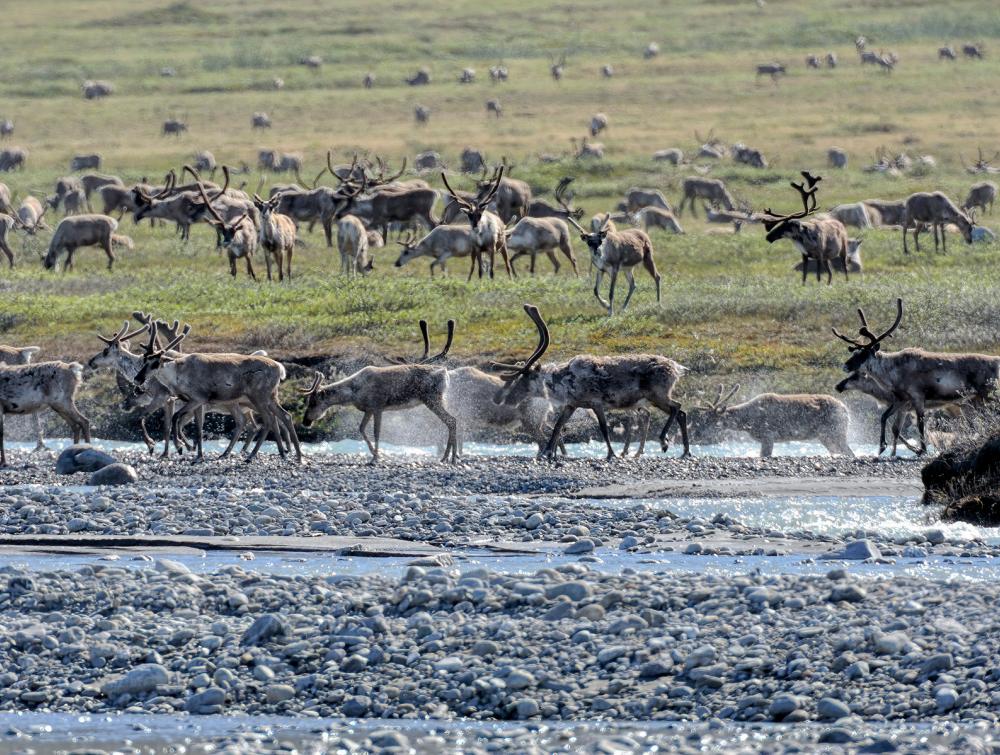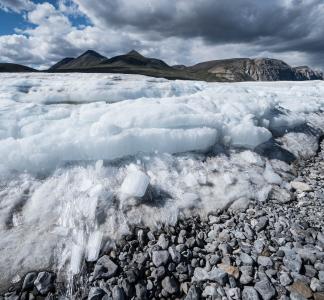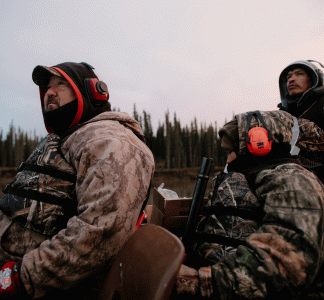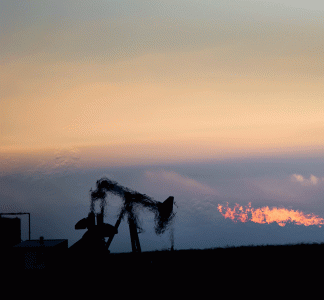Big step for Arctic Refuge: Biden admin suspends oil and gas leases

Caribou cross the icy Hulahula River near Old Man Creek and head to the Coastal Plain as part of their annual migration in the Arctic National Wildlife Refuge, Alaska
Edward Bennett/Bennett Images LLC
Permanent protection still needed
The Department of the Interior announced on June 1 that it is suspending oil and gas leases in the Arctic National Wildlife Refuge and temporarily halting all activities related to developing the affected tracts of land. The move is a response to the Trump administration’s rushed and legally dubious Jan. 6 lease sale, which amounted to a last-minute attack on the Gwich’in and Iñupiat communities that have depended on the refuge for generations.
The suspension of leases is good news for these Indigenous communities, which depend on the Porcupine Caribou Herd as a primary source of food. But it’s not the permanent protection that the region’s rural villages—and the caribou themselves—need to ensure their future.
Faulty Trump process rushed to hold lease sale
Announcing the suspension of leases, Secretary of the Interior Deb Haaland cited “multiple legal deficiencies” in the Trump leasing process, including environmental analysis that was haphazardly rushed along in order to hold a lease sale before President Biden’s inauguration. Secretary Haaland ordered “a new, comprehensive analysis of the potential environmental impacts of the oil and gas program.”
At 19.3 million acres, the Arctic Refuge is America’s largest wildlife refuge and its 1.5 million-acre coastal plain is the calving ground for the 200,000-animal Porcupine Caribou Herd. The refuge also provides habitat for polar bears, and migrating birds from across the globe, and a contains a diverse range of wilderness lands.
The massive infrastructure required to extract and transport oil and gas would have devastating impacts on this pristine and fragile ecosystem. The risk of an oil spill is high, and drilling would fragment vital habitat while forever scarring this nearly pristine landscape.
Congress opened the coastal plain to drilling with a controversial provision in the 2017 Tax Cuts and Jobs Act, despite the majority of people in America opposing drilling there. Then the Trump administration recklessly rushed forward with efforts to auction off sacred lands before a new president could prevent it. President Biden—who has long favored protecting the refuge for future generations—is now taking positive steps in that direction, but we must keep up the pressure.
We proudly stand with our Gwich’in and Iñupiat partners in the fight to obtain durable, permanent protections for this special place. With your continued support, we will persist until the Arctic National Wildlife Refuge is safe, and until we can all trust that no oil rig will ever touch it.



